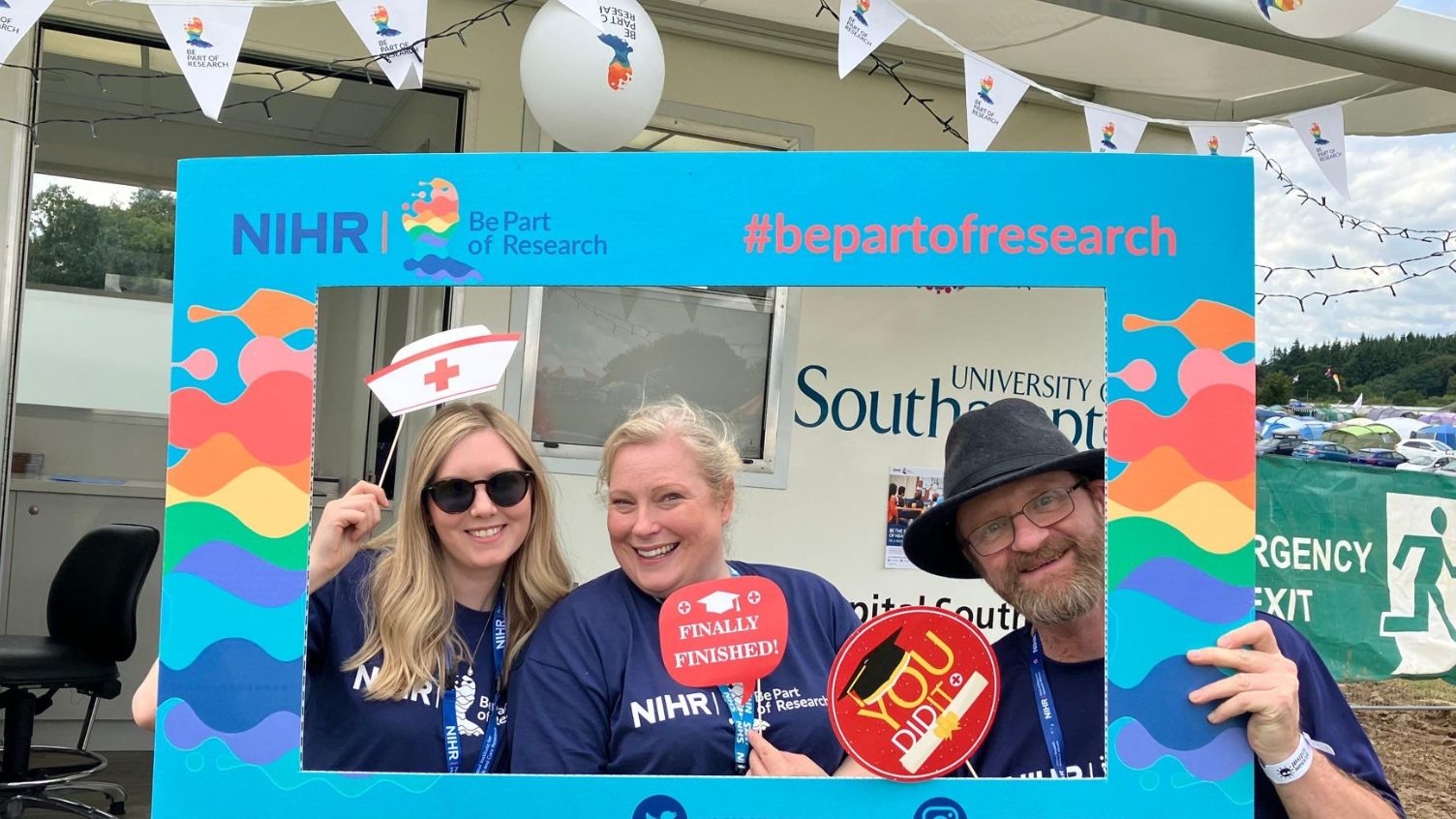“I want people to know we are a research-active trust”
- 16 January 2024
- 3 min read
Elisa Visentin
Elisa Visentin, who is based at Barking, Havering and Redbridge University Hospitals NHS Trust, talks through her first six months as a Practice Development Nurse.
One of the key goals for Elisa Visentin in her post as Practice Development Nurse (PDN) for Clinical Research is to help trust staff become "research-ready", so that research can become a part of everyday trust business.
Elisa, who works at Barking, Havering and Redbridge NHS Foundation Trust (BHRUT), is one of the first CRN-funded Practice Development Nurses for Clinical Research. In this role, she works with colleagues to help embed research across her trust. She has been in the role for just over six months.
The role has been created to meet the needs of patients and service users, as well as various local and national research strategies, such as the NIHR's Best Research For Best Health: the Next Chapter, and BHRUT's own Research and Innovation Strategy.
On a day-to-day basis, she provides colleagues with the tools to "demystify" research, such as research-specific training and education, so they can become research-ready. By research-ready, we mean in a position to support the delivery of clinical research within their area.
"It takes me back to the time of COVID, when we, as a research team, were working in research-naive areas on studies like RECOVERY. I want those areas to feel more research-ready - as in, having the understanding and training to make research part of everyday business."
To this end, Elisa is helping to develop a knowledge centre on the staff intranet to help colleagues get involved in research. She also hosts drop-in sessions where staff can learn more and sees research as a specialty within itself. The Trust is also piloting a Protocol Club, in partnership with the CRN. This sees Elisa working with a group that meets every other month to discuss the practicalities of delivering a particular study by taking a deeper look at its protocol.
For helping staff to deliver research, Elisa may provide mentorship, screening tools, crib sheets and so on to help deliver the research. Elisa has also developed, with key input from senior Research and Innovation management colleagues, a localised Principal Investigator Masterclass, which has received great feedback so far.
"Research is something I've always done," Elisa explained. "It's what I've always wanted to do. There has been some thinking that this post would be needed, and I must thank our trust managers for having the vision to support it, as well as CRN North Thames for funding it."
Elisa has been working with a number of clinical nurse specialists and Allied Health Professionals, and also meets with ward nurses and students on work experience placements.
Areas she has worked with so far include respiratory medicine, tissue viability, diabetes, critical care, oncology, colorectal surgery and neurosurgery.
Elisa's hard work appears to be paying off. One member of the tissue viability team said of a presentation by her: "We really enjoyed the session and you have fired up the team's passion to involve ourselves in research. We are very much looking forward to working with you."
This piece of positive feedback is just one of a number she has received in her six months to date in the post.
Elisa's vision would be for a network of similar PDN posts to be sited across trusts within the CRN North Thames region and beyond to facilitate cross-site collaboration and the potential of the post could be maximised.
She plans to continue increasing visibility in her role. "I want people to know we are a research-active trust," she said. "It's not just something you will find in the larger trusts."


